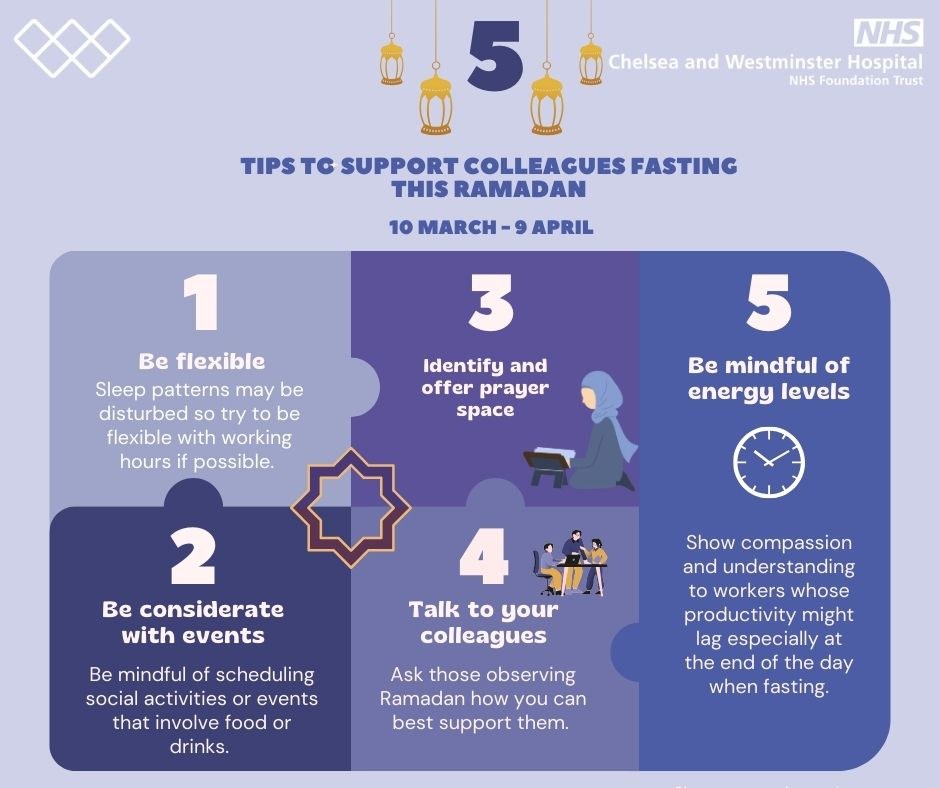Celebrating Ramadan

Ramadan is a holy month and a time of spiritual reflection. We would like to extend our warmest wishes to all of our Muslim colleagues and ask that everyone at the Trust supports those observing this holy period.
In 2024, Ramadan took place from 10 March to 9 April, ending with the celebration of Eid Al-Fitr.
The practice of fasting is an important part of Ramadan, meaning complete abstinence from food, drink and smoking between dawn and sunset during the month. Please note that some Muslims are exempt from fasting exempt from fasting.
Supporting you to have a healthy Ramadan
Do you take prescribed medicines?
Remember to continue taking prescribed medicines during Ramadan, but do check with your GP if the doses need to be adjusted or the times you take them need to change.
Do you have diabetes?
If you have diabetes and want to fast, you should speak to your GP or diabetes nurse about the safest way to do this. There is an exemption for people with diabetes, especially those on insulin or those who have any medical complications.
Attending medical appointments
If you have a medical appointment booked during Ramadan, it is very important that you attend. If you need to adjust the time of your appointment, please contact the relevant healthcare organisation to do so.
Exemptions
It’s important to remember that there are several exemptions allowed to fasting. Those with health conditions such as diabetes, high blood pressure, heart disease, lung disease, or those who are on medication, pregnant, or elderly should consider alternative options.
What to do if you become unwell while fasting
The British Islamic Medical Association advises that if you become unwell during Ramadan, you should stop fasting and seek medical advice. You can do this by visiting 111.nhs.uk, your GP practice’s website, or, if you don’t have access to the internet, by calling 111 or your practice directly.
Supporting each other

Eid Al-Fitr
The month ended with the celebration of Eid Al-Fitr, which began on Monday 8 April and ended at sundown on Tuesday 9 April. It's traditionally a celebration involving meals, parties, visiting family and friends, and attending special prayers in mosques.
Further resources
- Advice for people with diabetes on how to stay healthy during Ramadan can be found on the Diabetes UK website. There are also factsheets available in several different languages.
- The British Islamic Medical Association (BIMA) brings together Muslim healthcare professionals in the UK as one.
- The Muslim Council of Britain has the latest guidelines and advice for Muslims fasting during the month of Ramadan to help them make the most of the blessed month. This information is also useful for the friends, neighbours and colleagues of Muslims.
- Please see the North West London Clinical Commissioning Group website for further health advice.

